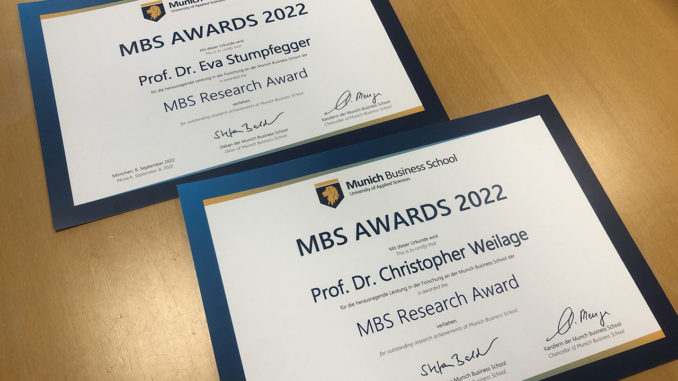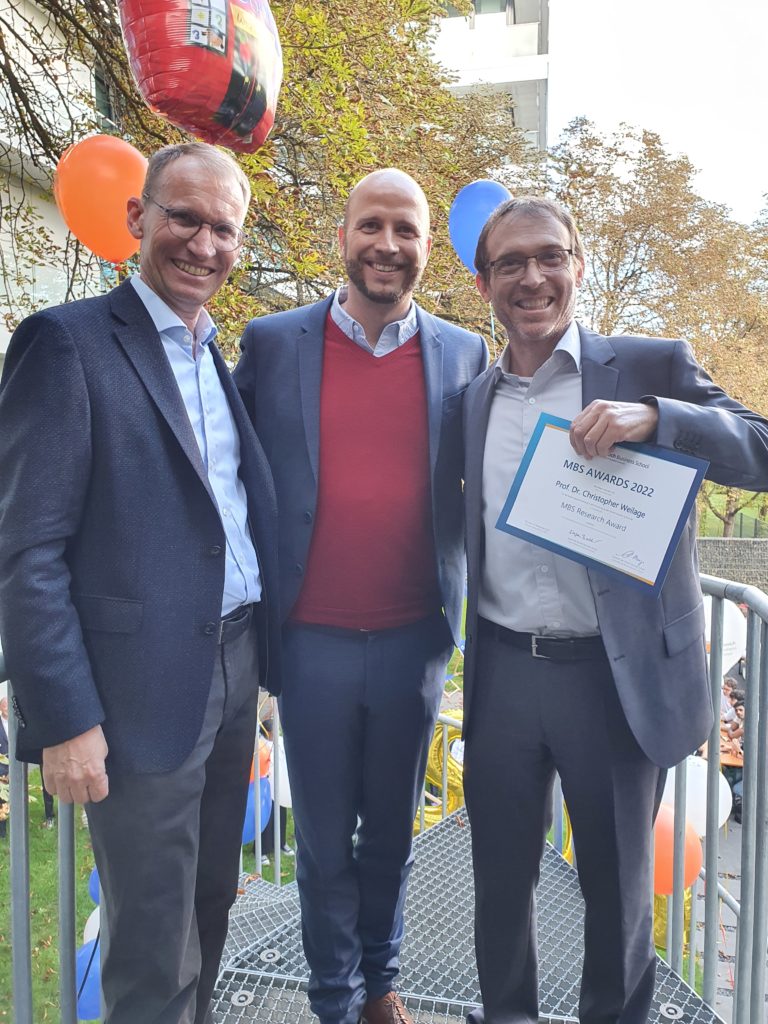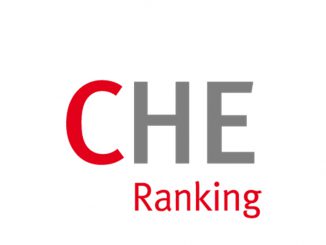
In this interview series, we introduce MBS lecturers on a regular basis, give an insight into their research projects and explain how corporate practice and students benefit from these. Today it’s the turn of the current MBS research awardees Prof. Dr. Eva Stumpfegger and Prof. Dr. Christopher Weilage. Both teach in the bachelor’s and master’s programs at Munich Business School.
MBS Insights: Dear Prof. Stumpfegger, dear Prof. Weilage, at the beginning of the fall term 2022, you were honored with the MBS Research Award for publishing several peer-reviewed papers in the past year in co-writing as well as with other MBS professors. Congratulations! Can you give us a more detailed insight into the topics of these papers? And how did your collaboration come about, since you come from different backgrounds?
Prof. Dr. Eva Stumpfegger: Our joint paper deals with the technology acceptance of online and hybrid teaching by university lecturers. As we share an office, we naturally communicate a lot. At some stage, we also ended up discussing a call for papers of the journal On The Horizon Chris Weilage had identified. We found that we are interested in the lecturer perspective as we noted that our peers did not necessarily like teaching online and in hybrid format as it required new investments particularly in time investments and gaining student attention. These challenges led to great instructor frustration. Therefore, we were curious to tackle that topic from a more objective perspective than personal experience. Since Chris had already worked with online instruction and I with technology acceptance models before, we decided to use this as our academic framework. The different backgrounds proved beneficial since we had always been aware that teaching different subjects requires different methods. Not overly surprisingly, existing research suggests that e.g. languages can be taught online very efficiently, whilst numbers-based subjects do better in person.
Prof. Dr. Christopher Weilage: In my joint work with Prof. Dr. Gabriella Maráz, I also dealt with online teaching. We researched the impact of studying in an master’s business program in Germany on employability, while participating in classes online, while either in Germany or abroad. The project allowed us to combine Gabriella Maráz’s cultural expertise with my online learning knowledge. The extensive search for participants across Germany paid off with results that are of interest to students considering enrolling in a degree program abroad while online and universities that recruit international master’s students. In addition, the project provided the basis for currently ongoing research being conducted by the three of us.
Prof. Dr. Eva Stumpfegger: In continuing cross departmental research involvement, I published two more papers in cooperation with Prof. Dr. Florian Bartholomae. As the COVID-19 pandemic had impacted both professional and private lives, we ended up discussing which measures were appropriate and which not. The discussion soon evolved academically, and we decided to look at the issue through the lens of economics and write about government interventions. This is how the article Government Interventions during the Coronavirus Pandemic – A Critical Consideration in Cesifo Forum 22 (5) came about.
Next, Lisha Du’s master’s thesis on equity crowdfunding that was supervised by Florian Bartolomae and me formed the basis for an article. Coincidentally, the original data used was the period just before the start of the pandemic. In order to give the paper current relevancy and draw conclusions on the immediate effect of the pandemic, Lisha Du extended the timeframe. Florian Bartholomae completely reworked the other chapters to make it suitable for journal publication.

MBS Insights: In your opinion, which aspects of your research are particularly interesting for students and how do you incorporate this into your teaching?
Prof. Dr. Christopher Weilage: Although MBS students and lecturers have a close working relationship, our work may offer unexpected insights into the lecturer perspective of online and hybrid teaching. Of course, reading academic articles in general may help students writing seminar papers and theses.
Our research has shown us that even though we feel well-versed in using technology, in-person classes is are best model for MBS with its comparatively small classes and personal contact.
From the work on employability, the following can be inferred for MBS students: for international master’s students, being present at MBS is already a solid first step in the right direction for employment within Germany. Other learnings for increasing the probability of obtaining employment in Germany are included in Business in Germany classes.
MBS Insights: And how does practice benefit from your research? Two of the papers deal specifically with the pedagogical area of university teaching – what were you able to find out there?
Prof. Dr. Eva Stumpfegger: One of the key recommendations of the technology acceptance article was that universities should provide training and support to lecturers to increase technology acceptance in online and hybrid teaching.
Prof. Dr. Christopher Weilage: The research on international master’s students highlighted that for universities with international students, renewed analysis for meeting participant’s employment goals is warranted, especially for online instruction. The pandemic opened new markets to universities, but they need to determine just who their program is best suited to and why, as this impacts recruitment and student satisfaction.
Hint: The first 25 (non-MBS students) who would like to read Online Study’s Influence on International Student Employability Factors in Germany: Germany vs. Overseas Based Students by Christopher Weilage and Gabriella Maráz will be granted free access to the article. Please contact insights@munich-business-school.de.



